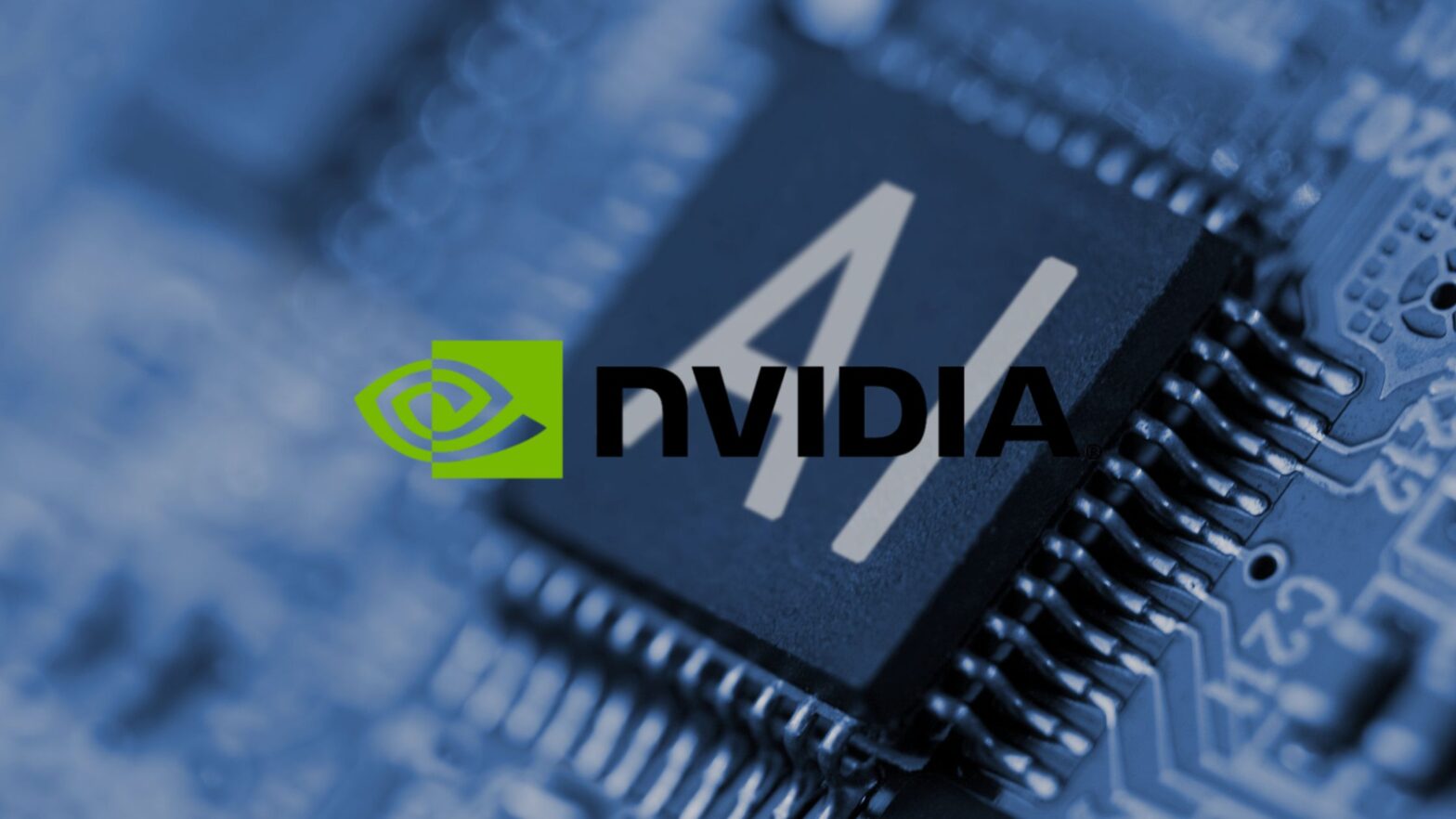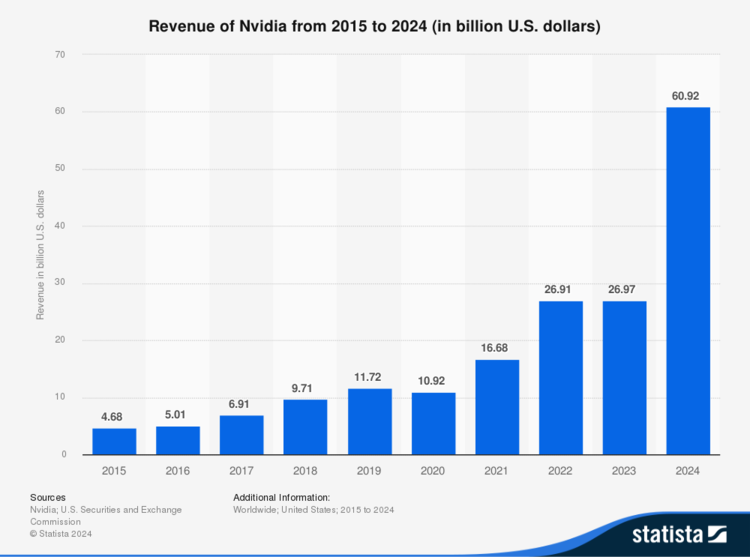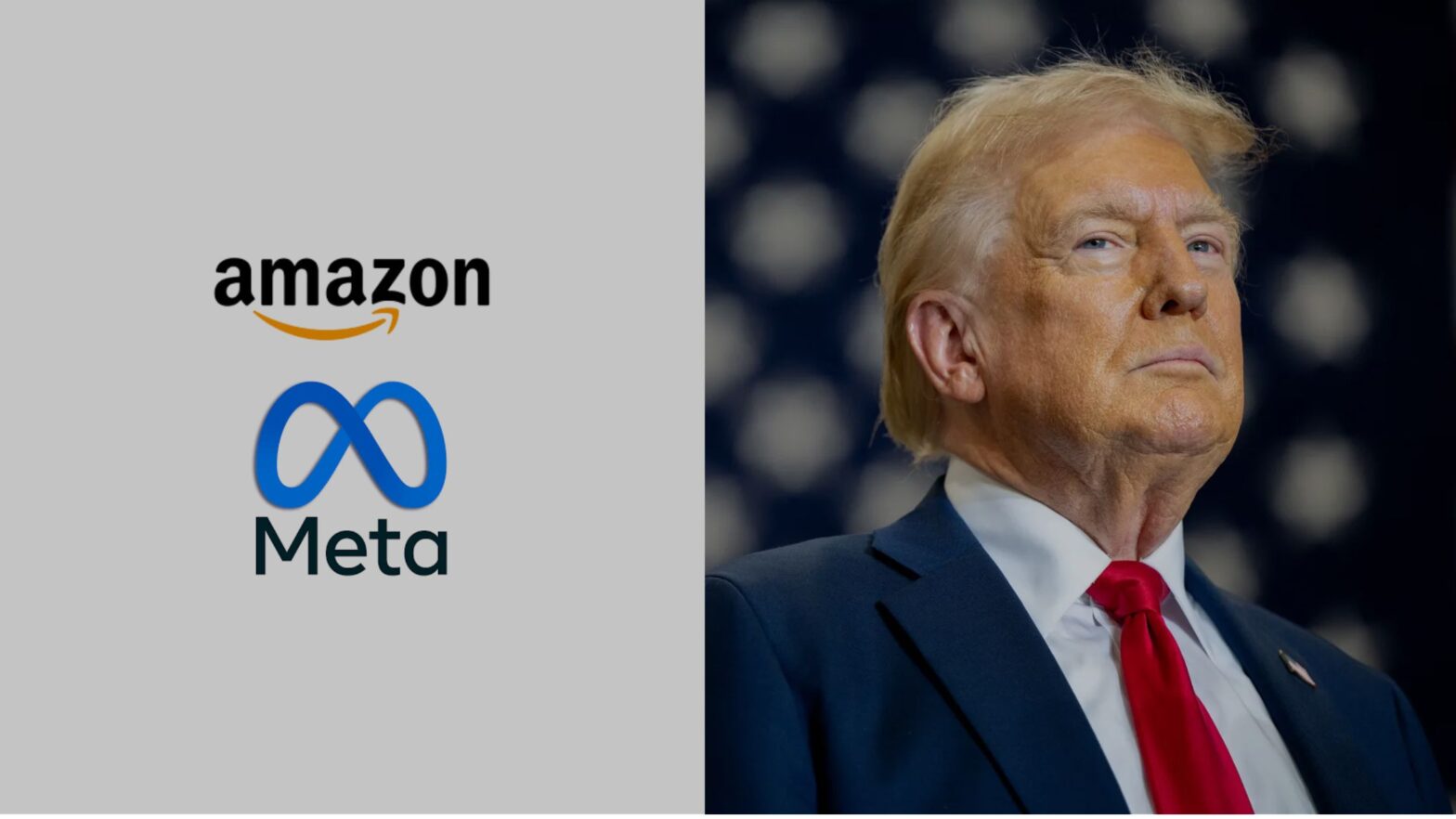United States tightens AI chip restrictions, regulation or strategy to maintain monopoly?
December 2, 2024

The United States’ restrictions on the trade of artificial intelligence (AI) chips with China remain a critical topic in technological geopolitics. This tightening aims to preserve U.S. technological leadership but also raises questions about the potential perception of a monopoly in a rapidly expanding market. To contextualize, the growth of Nvidia, a key player in the chip industry, highlights the strategic importance of this sector.
Nvidia’s Growth a perspective on the importance of AI chips
The revenue growth graph of Nvidia from 2015 to 2024 illustrates an unprecedented expansion, especially in recent years. From annual revenues of $4.68 billion in 2015, Nvidia is projected to close 2024 with $60.92 billion, driven primarily by the demand for advanced chips powering AI applications. This growth underscores not only the relevance of chips for AI and high-performance computing but also the role of the United States as a leader in this strategic technology.
Nvidia’s importance in the market goes beyond its revenues; its technology is pivotal in enabling solutions in areas like deep learning, cloud computing, and the metaverse. With this dominance, restrictions on access to such technologies in China take on a dimension that could be perceived as a strategy to safeguard a global monopoly.

Regulations vs. Monopoly: is balance possible?
While the United States justifies the restrictions as a means to prevent the misuse of technology for military or mass surveillance purposes, the exponential growth of companies like Nvidia can also be seen as an indication that these policies protect U.S. economic and strategic interests. This raises a critical question: how can national security be balanced with more equitable global growth?
A strategy that prioritizes international collaboration over unilateral restrictions could unlock new opportunities. For instance, multilateral agreements promoting regulated access to technology while ensuring the ethical and transparent use of AI chips could pave the way for shared growth.
From competition to collaboration
Nvidia’s numbers reflect the immense potential of AI technology but also highlight the need to address regulations strategically. Rather than trying to stifle China’s technological evolution, the United States has an opportunity to lead a global conversation on developing ethical and sustainable standards for AI chip usage.
This strategy would not only benefit dominant players but could also democratize access to technological innovation, fostering a global AI ecosystem that is inclusive and responsible.




